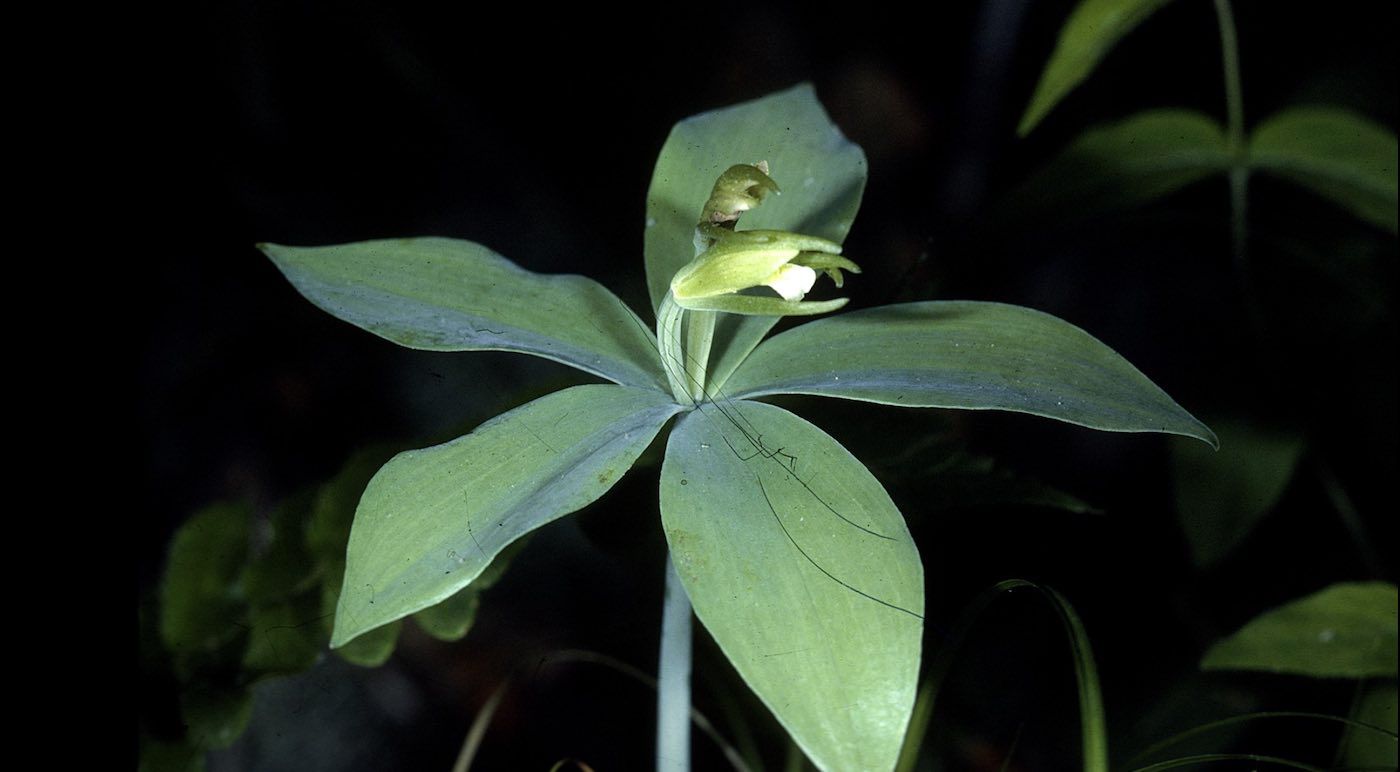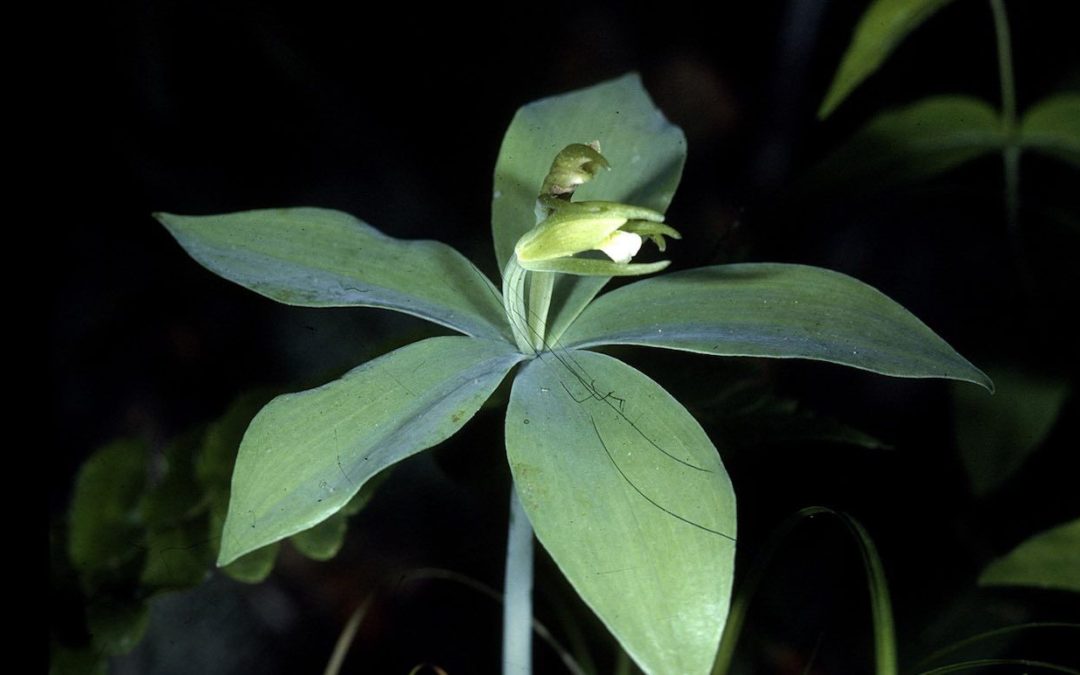
A rare orchid, Isotria medeoloides in latin and also known as a small whorled pogonia, that has been considered extinct since 1902 have been rediscovered by botanists from the Vermont Fish and Wildlife Department. This orchid is a globally-rare orchid and in the past it only bloomed in eastern US states and Ontario. Previous searches for the flower have been unsuccessful. Now it has been reported to grow on Winooski Valley Park District conservation land in Chittenden County.
“Discovering a viable population of a federally threatened species unknown in our state for over a century is astounding,” said Vermont Fish and Wildlife Department Botanist Bob Popp. “It’s Vermont’s equivalent of rediscovering the ivory-billed woodpecker.”
“A challenge of locating rare orchid populations for conservation is that so much of where they grow is determined by things we can’t easily see or measure, like networks of fungi in the soil,” said Vermont Fish and Wildlife Department Assistant Botanist Aaron Marcus.
Thanks to wildflower enthusiasts reporting different interesting findings via an app, small clues about what orchid habitats need have been gathered.
According to Marcus, they first got a heads up about a possible small whorled pogonia population thanks to the two community scientists John Gange of Shelburne and Tom Doubleday of Colchester.
“John is a passionate and skilled botanist who specializes in orchids and closely follows the sightings people report on the community science app iNaturalist,” said Marcus. “John noticed that a birder, retired greenhouse manager Tom Doubleday, had used iNaturalist to ask for help identifying an unfamiliar wildflower last July and reached out to us with the news that the orchid had very likely just been discovered in Vermont.”
Marcus explains that rare orchids are at a high risk from illegal collection and accidental trampling by passing visitors. Going forward, the department will be working with Winooski Valley Park District to look for the flower and monitor the population to make sure the species have the best chances to flourish in the conservation land.
“We’re incredibly fortunate that this small whorled pogonia population is on land protected by the Winooski Valley Park District,” said Popp. “It speaks to the importance of habitat conservation.
“When we conserve a piece of land, we rarely know all the species that are there, but we do know that conserving intact natural communities yields the best odds for supporting Vermont’s biodiversity, from common species to rare ones.”
Photo: Robert H. Mohlenbrock / USDA via Good News Network





